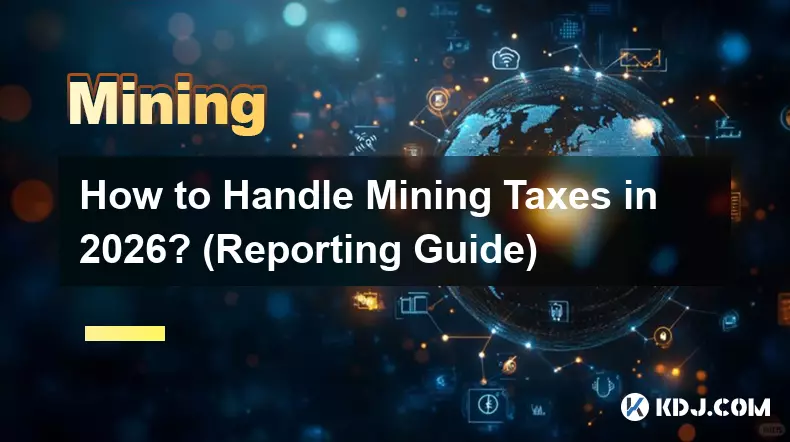-
 bitcoin
bitcoin $87959.907984 USD
1.34% -
 ethereum
ethereum $2920.497338 USD
3.04% -
 tether
tether $0.999775 USD
0.00% -
 xrp
xrp $2.237324 USD
8.12% -
 bnb
bnb $860.243768 USD
0.90% -
 solana
solana $138.089498 USD
5.43% -
 usd-coin
usd-coin $0.999807 USD
0.01% -
 tron
tron $0.272801 USD
-1.53% -
 dogecoin
dogecoin $0.150904 USD
2.96% -
 cardano
cardano $0.421635 USD
1.97% -
 hyperliquid
hyperliquid $32.152445 USD
2.23% -
 bitcoin-cash
bitcoin-cash $533.301069 USD
-1.94% -
 chainlink
chainlink $12.953417 USD
2.68% -
 unus-sed-leo
unus-sed-leo $9.535951 USD
0.73% -
 zcash
zcash $521.483386 USD
-2.87%
What countries have banned Bitcoin mining?
Several countries, including China, Iran, and Egypt, have banned Bitcoin mining due to concerns over energy use, financial stability, and religious law, enforcing restrictions through power cuts, hardware seizures, and legal penalties.
Jul 26, 2025 at 02:42 am

Overview of National Stances on Bitcoin Mining
Several countries have taken regulatory actions that either fully ban Bitcoin mining or impose severe restrictions on the practice. These decisions are typically driven by concerns over energy consumption, financial stability, and environmental impact. While some nations have outlawed mining operations entirely, others have implemented de facto bans through power disconnections or licensing denials. The legal status of Bitcoin mining can vary significantly, even within regions of the same country, depending on local governance and energy infrastructure.
Countries with Explicit Bitcoin Mining Bans
China implemented a comprehensive ban on cryptocurrency mining in 2021. The People’s Bank of China and other regulatory bodies declared all cryptocurrency-related activities illegal, including mining. Authorities shut down mining farms in provinces like Sichuan and Inner Mongolia, where cheap hydropower had previously attracted large-scale operations. The government cited concerns over financial risk, speculative trading, and excessive energy use as primary reasons. Miners were forced to relocate equipment overseas or cease operations entirely.
Iran has periodically banned Bitcoin mining during periods of high domestic electricity demand. The Iranian government attributes power outages to unregulated mining activities. Although mining was briefly legalized under a licensing system, the Ministry of Energy suspended all permits in 2021 and again in 2022 during summer months. Unauthorized miners face equipment confiscation and legal penalties. The ban is often seasonal but remains strictly enforced when active.
Egypt has declared all cryptocurrency activities, including mining, as contrary to Islamic law (Sharia). The Grand Mufti of Egypt issued a fatwa against crypto transactions, and the Central Bank of Egypt reinforced this by warning citizens of legal and financial risks. While enforcement focuses more on trading, mining is implicitly prohibited under the broader ban on crypto operations.
Regions with De Facto or Partial Restrictions
Nepal prohibits cryptocurrency mining under the Foreign Exchange Regulation Act. The Nepal Rastra Bank has explicitly stated that crypto activities are illegal, and individuals caught mining may face fines or imprisonment. Despite limited internet penetration, authorities actively monitor and suppress mining efforts.
Bangladesh enforces a strict ban through the Digital Security Act, which criminalizes the use and mining of cryptocurrencies. Offenders can face up to 10 years in prison. The Bangladesh Bank has repeatedly warned against crypto involvement, citing risks to national monetary policy.
Algeria includes Bitcoin mining under its broader prohibition of foreign digital currencies. The Ordinance on Prevention of Money Laundering bans any transaction or activity involving crypto assets. Enforcement includes surveillance of internet usage and confiscation of mining hardware.
Energy-Driven Regulatory Actions
Some countries restrict Bitcoin mining due to energy grid strain rather than ideological opposition. For example, Kazakhstan introduced temporary limits on mining during winter months when energy demand spikes. While not a full ban, the government requires miners to sign power supply agreements and may disconnect operations during shortages.
Similarly, North Macedonia cracked down on illegal mining operations that were overloading residential power lines. Authorities conducted raids, seizing thousands of ASIC miners and GPU rigs. Although no nationwide law explicitly bans mining, unauthorized operations are treated as energy theft.
In Venezuela, despite having state-backed cryptocurrency initiatives, unlicensed mining is illegal. The government provides subsidized electricity, leading to widespread abuse. The National Superintendence of Cryptoassets requires all miners to register, and unapproved operations face shutdowns.
How Mining Bans Are Enforced
Governments use multiple methods to enforce mining restrictions:
- Internet monitoring: Authorities in China and Iran use deep packet inspection to detect mining-related traffic, particularly connections to mining pools.
- Power usage analysis: Unusually high electricity consumption in residential areas triggers investigations. In North Macedonia, utility companies report suspicious usage patterns.
- Hardware seizures: Law enforcement confiscates mining rigs, GPUs, and ASIC devices during raids. In Bangladesh, customs officials inspect imported computer parts for mining use.
- Legal prosecution: Individuals and companies involved in mining face fines, imprisonment, or business license revocation. In Egypt, courts have convicted citizens under financial fraud statutes.
Compliance is monitored through collaboration between central banks, energy ministries, and telecom regulators. Some countries require ISPs to block access to known mining pool domains.
Alternatives and Workarounds in Restricted Jurisdictions
Despite bans, some individuals attempt to mine Bitcoin covertly:
- Using low-power devices such as Raspberry Pi with mining software like Awesome Miner or EasyMiner.
- Connecting to decentralized mining pools via Tor or VPN to hide IP addresses.
- Deploying solar-powered mining setups in remote areas to avoid grid monitoring.
- Mining privacy coins or lesser-known cryptocurrencies that are less likely to be flagged.
However, these methods carry significant risks. Detection often leads to harsh penalties. In Iran, for instance, even small-scale miners have had equipment destroyed by authorities.
Frequently Asked Questions
Can I mine Bitcoin on a personal computer in a banned country?While technically possible, doing so in a country with a mining ban exposes you to legal risk. Even using a home PC with software like CGMiner or BFGMiner can be detected through power usage spikes or network monitoring. Authorities in Bangladesh and Egypt have prosecuted individuals for small-scale operations.
Are cloud mining services affected by national bans?Cloud mining is generally not restricted by local bans since the hardware is located abroad. However, residents of banned countries may face obstacles in purchasing contracts due to KYC policies. Platforms like Genesis Mining or NiceHash may block users from sanctioned regions.
How do governments detect mining activity?Governments analyze electricity consumption patterns, monitor network traffic to mining pools, and conduct physical inspections. In China, local committees report suspected mining farms. In Iran, the Ministry of Energy uses smart meters to identify abnormal power draws.
Is mining Bitcoin illegal if I use renewable energy?Legality depends on national law, not energy source. In Iran and Algeria, even solar-powered mining is prohibited. Regulatory frameworks focus on the act of mining, not the energy type. Compliance requires adherence to local statutes, regardless of environmental impact.
Disclaimer:info@kdj.com
The information provided is not trading advice. kdj.com does not assume any responsibility for any investments made based on the information provided in this article. Cryptocurrencies are highly volatile and it is highly recommended that you invest with caution after thorough research!
If you believe that the content used on this website infringes your copyright, please contact us immediately (info@kdj.com) and we will delete it promptly.
- Tokenization, Stablecoins, Remittances: The New York Minute for Global Finance
- 2026-02-01 19:20:01
- BlockDAG Poised for 100x Crypto Opportunity as Presale Enters Final Hours, Promising Massive Gains
- 2026-02-01 19:20:01
- Circle Charts Bold Course: Stablecoins to Reshape Global Finance by 2026
- 2026-02-01 19:25:01
- Big Apple Bites into Blockchain: Ethereum DApps, Exchanges, and Games Navigate a Shifting Crypto Tide
- 2026-02-01 19:15:01
- Cryptocurrency Presales and Pumpfun: The Big Apple's Bold Bet on Digital Gold Rush
- 2026-02-01 19:15:01
- Pi Network Bolsters Mainnet Migration and KYC Enhancements Amidst Ecosystem Growth
- 2026-02-01 19:10:02
Related knowledge

How to Earn Passive Income with DePIN Mining? (New Trend 2026)
Feb 01,2026 at 12:40pm
Understanding DePIN Mining Mechanics1. DePIN mining relies on real-world infrastructure participation rather than computational hashing. Users deploy ...

How to Mine Bitcoin on Mac (M1/M2/M3)? (Software Tutorial)
Feb 01,2026 at 07:19pm
Understanding Bitcoin Mining on Apple Silicon1. Bitcoin mining relies on solving cryptographic puzzles using computational power, and Apple’s M1, M2, ...

How to Buy Used Mining Hardware Without Getting Scammed?
Feb 01,2026 at 08:00pm
Research the Seller's Reputation Thoroughly1. Check archived listings and feedback on platforms like Bitcointalk forums, Mining Hardware subreddits, a...

How to Handle Mining Taxes in 2026? (Reporting Guide)
Feb 01,2026 at 01:39am
Tax Classification of Mining Rewards1. Cryptocurrency mining rewards are treated as ordinary income at the fair market value on the date of receipt. 2...

How to Start Solo Mining and Win a Block Reward? (High Risk/Reward)
Feb 01,2026 at 06:40am
Understanding Solo Mining Mechanics1. Solo mining means operating a full node and attempting to solve cryptographic puzzles independently without join...

How to Mine Crypto in the Background While Gaming? (PC Setup)
Feb 01,2026 at 01:20pm
Optimizing GPU Utilization During Gaming Sessions1. Modern gaming GPUs often idle certain shader units or memory bandwidth during less demanding scene...

How to Earn Passive Income with DePIN Mining? (New Trend 2026)
Feb 01,2026 at 12:40pm
Understanding DePIN Mining Mechanics1. DePIN mining relies on real-world infrastructure participation rather than computational hashing. Users deploy ...

How to Mine Bitcoin on Mac (M1/M2/M3)? (Software Tutorial)
Feb 01,2026 at 07:19pm
Understanding Bitcoin Mining on Apple Silicon1. Bitcoin mining relies on solving cryptographic puzzles using computational power, and Apple’s M1, M2, ...

How to Buy Used Mining Hardware Without Getting Scammed?
Feb 01,2026 at 08:00pm
Research the Seller's Reputation Thoroughly1. Check archived listings and feedback on platforms like Bitcointalk forums, Mining Hardware subreddits, a...

How to Handle Mining Taxes in 2026? (Reporting Guide)
Feb 01,2026 at 01:39am
Tax Classification of Mining Rewards1. Cryptocurrency mining rewards are treated as ordinary income at the fair market value on the date of receipt. 2...

How to Start Solo Mining and Win a Block Reward? (High Risk/Reward)
Feb 01,2026 at 06:40am
Understanding Solo Mining Mechanics1. Solo mining means operating a full node and attempting to solve cryptographic puzzles independently without join...

How to Mine Crypto in the Background While Gaming? (PC Setup)
Feb 01,2026 at 01:20pm
Optimizing GPU Utilization During Gaming Sessions1. Modern gaming GPUs often idle certain shader units or memory bandwidth during less demanding scene...
See all articles
























![[Audio stories] Streamer Became a Billionaire Overnight After Buying One Junk Coin [Audio stories] Streamer Became a Billionaire Overnight After Buying One Junk Coin](/uploads/2026/02/01/cryptocurrencies-news/videos/origin_697eaa9a495ed_image_500_375.webp)

















































